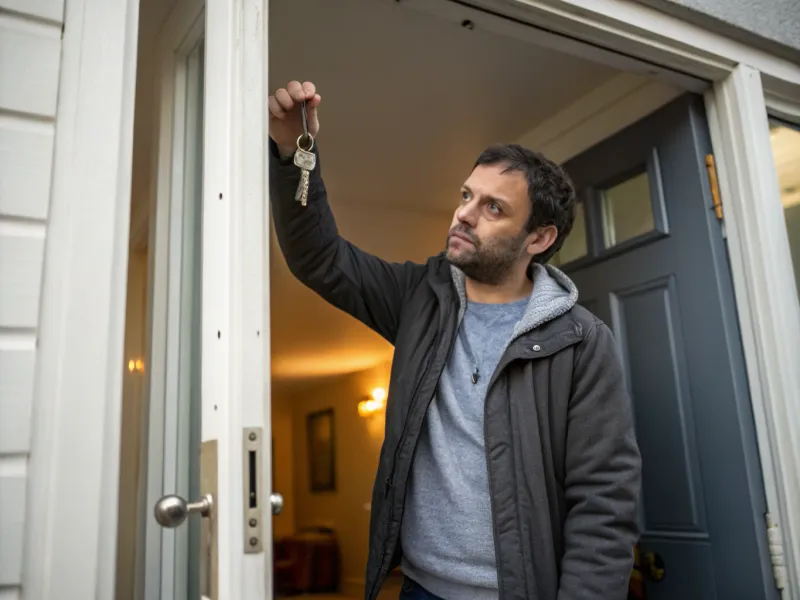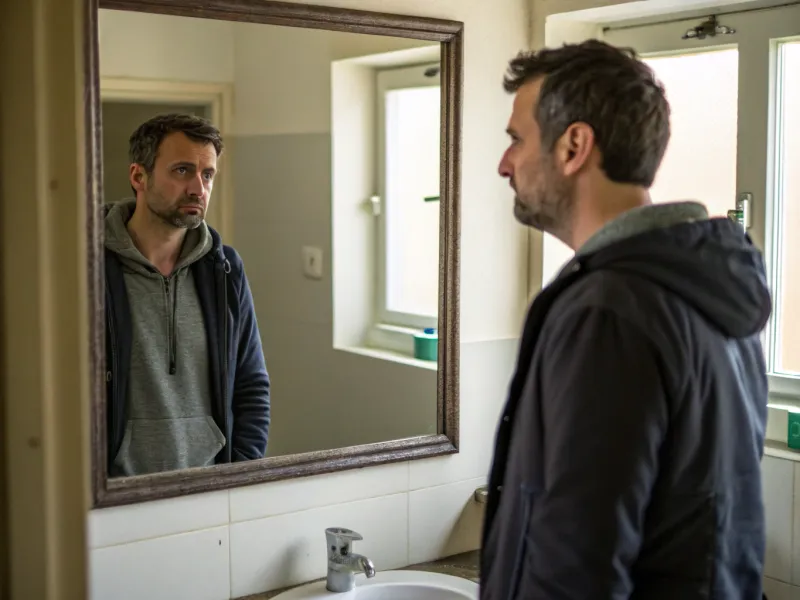37 Ways To Tell If You’re Burned Out From A Difficult Marriage
When you’re in the throes of a struggling marriage, it’s like being caught in a turbulent storm that never seems to pass. You find yourself emotionally battered, exhausted from the constant turmoil and longing for peace.
It’s a void where love once flourished, now filled with frustration and weariness. Recognizing that you might be burned out is the first step toward reclaiming your life, whether that means healing your marriage or choosing a different path.
Here’s a look at 37 signs that might indicate you’re experiencing burnout from your marriage.
1. Emotional Drain After Conversations

Every interaction leaves you feeling like you’ve run a marathon. The simplest exchange seems to sap your emotional reserves, leaving you hollow and fatigued. You once thrived on deep connections, but now even trivial discussions feel burdensome. This emotional drain indicates a deeper issue at play.
You may find yourself withdrawing, avoiding conversations to preserve what little energy you have left. It’s not that you don’t care; it’s that caring has become an uphill battle. This constant depletion is a hallmark of burnout, a sign that your marriage is taking more from you than it gives.
Finding small moments of solitude to recharge becomes essential. Consider journaling or speaking with a therapist to help navigate these turbulent waters. It’s crucial to acknowledge this exhaustion, not as a personal failing, but as a signal to seek change. Ignoring it won’t make it disappear, and recognition is the first step towards healing.
2. Dreading Time Together

Once, the prospect of a weekend together was thrilling, a chance to reconnect and enjoy shared interests. Now, the mere thought of prolonged time with your partner fills you with apprehension. It feels like a chore, an obligation that weighs heavily.
This dread isn’t about them as a person but about the space between you that feels insurmountable. Avoiding time together can be a defense mechanism, a way to shield yourself from the conflicts that seem to inevitably arise.nnExploring why this time feels heavy is crucial.
Are there unresolved issues that need addressing? Would a change in environment or routine help lighten the load? While it’s natural for relationships to ebb and flow, persistent dread indicates a need for intervention, a chance to address the underlying causes and find a path forward.
3. Repetitive, Exhausting Arguments

Arguments have become a broken record, looping the same grievances without resolution. Each fight chips away at your spirit, leaving you more weary and less hopeful.
The exhaustion stems not just from the conflict but from the futility. You’re both entrenched in positions, repeating the same points without listening or adapting. It’s a cycle that drains your emotional well-being.
To break free, it might help to change how you approach disagreements. Consider mediation or couples therapy to foster understanding and empathy. Sometimes, having a neutral third party can shift the dynamic, allowing for genuine resolution rather than endless rehashing. Recognize that this pattern signifies a deeper need for change.
4. Fantasizing About Life Alone

In daydreams, you find yourself imagining a life without the constant strain of your marriage. It’s not just a fleeting thought but a regular escape into a world where you’re free from emotional turmoil.
This fantasy isn’t about running from responsibilities but seeking peace that feels unattainable in your current situation. It highlights a need for space and clarity. Reflecting on these fantasies can be eye-opening. Are they indicative of deeper desires for independence or simply a respite from stress?
Understanding their root can guide you in deciding whether to work on the marriage or consider another path. Remember, these dreams are a call to evaluate what truly brings you fulfillment.
5. Annoyances Becoming Unbearable

Small quirks that once endeared have become intolerable irritants. The way they chew, leave clothes around, or even their choice of words seems to grate on your nerves like never before.
These annoyances are more than about them; they reflect the underlying tension in the relationship. Your patience has worn thin, and you are unable to buffer the frictions of daily life.
Recognizing this shift is important. It might help to step back and assess whether these grievances are symptoms of larger unresolved issues. Consider open communication about how you feel, without accusations. Sometimes, a change in perspective or a focus on shared goals can ease these irritations.
6. Physical Exhaustion from Emotional Weight

Your body feels as weary as your mind, dragging through days as if burdened by an invisible weight. Emotional stress has manifested physically, making even simple tasks feel herculean.
This exhaustion isn’t just about lack of sleep; it’s the result of carrying emotional burdens day in and day out. Your body responds to this constant stress with fatigue, aches, and even illness.
Acknowledge this exhaustion as a serious issue. Prioritize self-care and rest, seeking professional help if needed. Sometimes, it might mean taking a break or finding moments of joy and relaxation to rejuvenate. Remember, your health is intertwined with your emotional state, and addressing your physical needs can also help heal emotional wounds.
7. Indifference to Conflict

Once a passionate advocate for your needs and desires, you’ve now grown indifferent to conflicts. It’s easier to remain silent, to let disagreements slide rather than engage. This indifference isn’t peace; it’s a protective shield against further disappointment.
It signals a withdrawal from the emotional investment once made. Understanding this shift is key. Is this indifference born from hopelessness, or is it a sign of deeper acceptance?
Reflect on your reasons for disengagement, and consider whether re-engaging with a focus on solutions could reignite your connection. Sometimes, taking steps to renew interest and commitment can uncover a renewed sense of purpose.
8. Greater Investment in Distractions

You find yourself increasingly immersed in work, hobbies, or social media, anything to divert your attention from the relationship. These distractions become your refuge, a sanctuary from marital stress.
While engaging in activities outside of your relationship is healthy, using them as a constant escape signifies deeper issues. The investment in distractions is a coping mechanism, a way to avoid confronting the challenges of your marriage.n ecognizing this pattern can prompt reflection on what you’re avoiding.
Consider setting aside time to face these issues head-on, perhaps with professional guidance. Balancing personal interests and relationship responsibilities is essential for long-term satisfaction. It’s about finding harmony rather than escape.
9. Emotional Numbness

Feelings that once ran deep now seem muted. Joy, sadness, love, and anger are all dulled, replaced by a pervasive numbness. It’s as though your emotional spectrum has narrowed, leaving you in a colorless void.
It signals a disconnection not just from your partner, but from your own emotional landscape. Acknowledging this numbness is the first step towards healing. Consider seeking therapy or engaging in activities that once sparked joy.
Reconnecting with your emotions, even if slowly, can help you regain a sense of wholeness and purpose. It’s about nurturing yourself back to vibrancy.
10. Constant Overthinking

Your mind is a relentless whirlpool of worries and what-ifs. Analyzing every word, and every gesture, trying to decipher hidden meanings and future implications. It’s an exhausting cycle that never seems to end.
Overthinking indicates a mind in turmoil, grappling for control in an uncontrollable situation. It’s a sign of burnout, where the mental energy once used for problem-solving is now consumed by endless loops of doubt and fear.nnBreaking this cycle involves mindfulness and self-awareness.
Grounding techniques, meditation, or speaking with a mental health professional can help. Recognizing that not everything can be solved in your head is crucial. Sometimes, it’s about finding peace in the unknown, trusting the process rather than seeking certainty.
11. Lack of Intimacy

Physical and emotional intimacy has faded, leaving a palpable distance. The closeness that once defined your relationship now feels like a distant memory. This lack of intimacy isn’t just about physical touch; it’s about emotional connection, the shared moments that bond two people together. Its absence is a glaring indicator of marital strain.
Rebuilding intimacy requires patience and willingness from both partners. Start with small gestures of affection, honest conversations, and shared activities that reignite the spark.
Sometimes, seeking guidance from a therapist can provide the tools needed to bridge the gap. Remember, intimacy is the glue that holds relationships together, and nurturing it can lead to profound healing.
12. Resentment Lingers

The grievances of the past linger like shadows, coloring your present interactions with bitterness. Every slight, every unresolved argument adds to a growing pile of resentment.
It’s a heavy burden that saps joy and fosters disconnection. Addressing underlying issues can help dissipate resentment. Open communication, forgiveness, and a willingness to move forward are essential.
Consider writing down your feelings to understand them better or seeking couples therapy to navigate this complex terrain. Letting go of resentment is challenging but necessary for a healthier, more fulfilling relationship.
13. Avoidance of Home

Home, once a sanctuary, now feels like a space filled with tension and unresolved issues. You find reasons to stay out, lingering at work or seeking other environments where you feel more at ease.
This avoidance reflects a desire to escape the discomfort and conflicts that have become ingrained in the home environment. It’s a sign that the marital dynamic is not providing the safety and comfort it once did.
Addressing this avoidance requires introspection. Sometimes, simple changes in routine or environment can make a significant difference. Consider open dialogues about these feelings, aiming to create a home where both partners feel valued and secure.
14. Loss of Personal Identity

In the struggle to maintain your marriage, you’ve lost a sense of who you are. Your identity, once clear and strong, now feels blurred and overshadowed by marital challenges.
This loss of self can lead to feelings of emptiness and confusion as if you’ve become a stranger to your own dreams and desires. It’s an identity crisis often fueled by prioritizing the relationship over personal growth.
Engage in activities that spark joy, consider professional counseling to explore your identity, and remember that a healthy relationship complements your individuality without consuming it. Rediscovering who you are can be a powerful step toward both personal fulfillment and a healthier marriage.
15. Mood Swings

Your emotions seem to be on a rollercoaster, with highs and lows that change rapidly and often unpredictably. One moment you’re hopeful, the next, overwhelmed by despair.
These mood swings can be unsettling, not just for you but for your partner as well. They indicate an internal struggle, a mind, and heart caught in the turmoil of marital stress.
Consider mindfulness practices, such as meditation or yoga, to help stabilize your mood. Professional help can also provide insights and strategies to manage emotions effectively. Understanding and addressing these swings can lead to greater emotional balance and clarity.
16. Decreased Interest in Shared Activities

Activities you once enjoyed together now feel like obligations rather than joys. The shared hobbies, outings, and adventures that once brought you closer seem dull and unappealing.
Rekindling interest in shared activities requires effort and openness. Consider revisiting old hobbies with a fresh perspective or exploring new interests together.
Communicate about what excites each of you, and find common ground that sparks joy. Sometimes, redefining what it means to enjoy shared time can lead to renewed connection and happiness.
17. Perpetual Loneliness

Even in each other’s company, you feel a profound loneliness, a sense that you’re navigating life’s challenges alone. The emotional distance is vast, leaving you yearning for connection.
It highlights a need for deeper, more meaningful interactions that bridge the divide. Addressing this loneliness involves nurturing emotional intimacy. Engage in heartfelt conversations, express vulnerabilities, and seek ways to strengthen your bond.
Sometimes, seeking professional support can help guide you in rebuilding closeness. It’s about transforming isolation into connection, finding solace and companionship in each other.
18. Constant Comparison to Others

You find yourself frequently comparing your relationship to others, measuring your marriage against what you perceive as happier, more successful couples. This comparison fosters dissatisfaction and envy.
Constant comparison is a reflection of unmet needs and desires within your relationship. It highlights deficiencies and overshadows the unique strengths you and your partner share. Shifting focus from others to your own relationship can be liberating.
Celebrate your unique bond, acknowledge growth areas, and set realistic expectations. Embracing uniqueness can help you appreciate what you have and work towards what you desire.
19. Emotional Outbursts

Your emotions spill over, resulting in unexpected outbursts that surprise both you and your partner. Anger, frustration, and sadness erupt suddenly, often without clear provocation.
These outbursts indicate a boiling point, where suppressed feelings and unresolved issues find expression. They’re a sign of burnout, highlighting emotional overload. Understanding the triggers for these outbursts is crucial.
Sometimes, seeking professional support can provide tools to manage emotions constructively. Finding healthier ways to express feelings can prevent eruptions and foster understanding.
20. Disinterest in Future Planning

Discussions about the future, once filled with excitement and hope, now seem futile and uninteresting. Planning together feels more like navigating a minefield than a shared adventure.
Rekindling interest in the future involves fostering hope and connection. Engage in conversations about shared dreams, set achievable goals, and celebrate small victories. Sometimes, seeking guidance from a counselor can help facilitate these discussions.
Reimagining your future together can reignite passion and purpose, transforming uncertainty into possibility.
21. Avoiding Serious Conversations

Important topics are left untouched and avoided to prevent conflict or emotional discomfort. It’s easier to stay on the surface than dive into issues that require depth and vulnerability.
Avoidance is a defense mechanism, a way to protect yourself from potential pain. However, ignoring serious conversations only delays the inevitable, allowing issues to fester. Addressing this avoidance requires courage and commitment.
Start with small steps, gradually broaching sensitive topics with empathy and understanding. Consider setting aside regular time for open communication, and seek professional support if needed.
22. Lack of Support

In times of need, you find yourself feeling unsupported as if you’re carrying life’s burdens alone. The partnership you once relied on feels absent, leaving you isolated and overwhelmed.
This lack of support is a significant sign of marital strain, highlighting a disconnect in mutual care and understanding. It leaves you questioning the foundation of the relationship. Rebuilding support involves communication and collaboration.
Express your needs openly, and listen to your partner’s perspective. Sometimes, seeking guidance from a relationship coach can provide strategies for fostering mutual support. Remember, a strong relationship thrives on reciprocity and shared effort, where both partners feel valued and heard.
23. Doubting Your Self-Worth

The challenges of your marriage have seeped into your sense of self, leading you to question your worth and value. Criticism, neglect, or unresolved issues contribute to these doubts.
Rebuilding self-worth involves self-reflection and self-care. Engage in affirming activities, surround yourself with supportive people, and seek professional support if needed.
Recognize your inherent value, independent of your relationship. Reclaiming self-worth is essential not just for personal well-being but for fostering a healthier, more balanced partnership.
24. Lack of Gratitude

The small gestures of kindness and support that once filled your relationship with warmth now go unnoticed. Gratitude has faded, replaced by a focus on grievances and unmet expectations.
This lack of gratitude is a symptom of burnout, where positivity is overshadowed by negativity. It creates a cycle of dissatisfaction, where appreciation is lost in the daily grind.
Take time to acknowledge and express appreciation for your partner’s efforts, however small. Consider keeping a gratitude journal, and sharing positive observations with each other. Rebuilding gratitude can transform your perspective, fostering a more positive and fulfilling relationship.
25. Feeling Trapped

The walls of your marriage feel like a cage, confining and limiting your sense of freedom and autonomy. The dreams and aspirations you once held now seem distant and unattainable.
Feeling trapped is a significant indicator of burnout, where the relationship feels more like a constraint than a choice. It leaves you longing for an escape, a chance to reclaim your independence.
Addressing this feeling involves exploring what freedom means to you. Engage in open conversations about your needs and desires, and consider seeking support to navigate these complex emotions. Sometimes, redefining boundaries and expectations can create space for individuality within the relationship.
26. Neglecting Self-Care

In the midst of marital challenges, self-care takes a backseat. Your needs, once a priority, are now overshadowed by the demands of the relationship.
Neglecting self-care is a common sign of burnout, where personal well-being is sacrificed for the sake of the marriage. It leads to physical and emotional exhaustion, leaving you depleted.
Reclaiming self-care involves prioritizing your own well-being. Engage in activities that nurture your mind, body, and spirit. Set boundaries that protect your time and energy, and seek support if needed.
27. Lack of Joy

Joy, once abundant, now feels elusive. The laughter and happiness that defined your relationship have been replaced by monotony and indifference.
This lack of joy is a clear sign of burnout, where the vibrancy of life is overshadowed by stress and disconnection. It leaves you yearning for the lightness and fun that once characterized your bond.
Rekindling joy involves reconnecting with what makes you both happy. Explore new activities, revisit cherished memories, and engage in playful interactions. Sometimes, seeking professional guidance can help uncover barriers to joy.
28. Inconsistent Effort

Efforts in the relationship have become sporadic and inconsistent. One day you’re fully engaged, the next, indifferent and detached.
This inconsistency reflects underlying uncertainty and burnout, where emotional energy is depleted and motivation wanes. It creates confusion and tension, leaving both partners feeling unbalanced.
Addressing this requires commitment and communication. Discuss expectations and desires, explore what drives inconsistency, and consider seeking guidance to rebuild stability. Consistent effort fosters trust and connection, creating a solid foundation for growth.
29. Feeling Overwhelmed by Responsibilities

The responsibilities of marriage and family life loom large, like an insurmountable mountain. You’re overwhelmed by the daily tasks that once seemed manageable.
Finding balance involves reassessing priorities and sharing responsibilities. Communicate openly about needs and limits, and consider seeking support or delegating tasks.
Sometimes, small changes in routine can create significant shifts in how responsibilities are managed. Remember, a partnership means sharing the load, where both partners feel supported and valued.
30. Emotional Withdrawal

You’ve pulled away emotionally, creating a distance between you and your partner that feels insurmountable. The connection that once defined your relationship now feels like a distant memory.
Addressing withdrawal involves acknowledging the emotions beneath it. Engage in open dialogue with your partner, consider seeking therapy, and explore what it would take to reconnect emotionally.
Healing isn’t about forcing closeness but fostering a safe space where reconnection feels possible. Remember, emotional intimacy is built on trust and openness.
31. Cynicism Towards Relationship

What was once seen through a lens of optimism is now viewed with cynicism and skepticism. The relationship feels like a series of disappointments, overshadowing any hope for a positive future.
This cynicism is a defense mechanism, a way to shield yourself from further disappointment. It reflects a deeper disillusionment with the relationship’s trajectory. Countering cynicism involves a shift in perspective. Focus on past successes, engage in positive interactions, and consider seeking professional guidance to rebuild hope.
Sometimes, altering your outlook can lead to renewed optimism and possibility. Remember, hope is a powerful motivator, and nurturing it can transform cynicism into opportunity.
32. Financial Strain

Financial challenges add a layer of stress to an already strained relationship. Money issues become a frequent source of conflict and tension.
It leaves you feeling anxious and uncertain about the future. Addressing financial strain involves open communication and cooperation. Set clear financial goals, create a budget together, and seek professional advice if needed.
Finding common ground in financial matters can alleviate stress and foster a sense of collaboration. Remember, financial harmony is essential for relationship stability, where both partners feel secure and aligned.
33. Fear of Being Alone

The thought of being alone, despite the challenges of your marriage, fills you with fear. It’s a paradox where the known discomfort feels safer than the unknown possibility of solitude.
This fear highlights a dependency, where the relationship provides a sense of identity and security. It leaves you feeling trapped, torn between dissatisfaction and fear.
Overcoming this fear involves fostering independence and self-reliance. Engage in activities that build confidence, seek support from friends and professionals, and explore what it means to be content alone. Remember, being alone doesn’t equate to loneliness. Embracing solitude can lead to self-discovery and empowerment, enhancing both personal and relational well-being.
34. Lack of Empathy

Empathy, the cornerstone of connection, has eroded, leaving a chasm of misunderstanding and indifference. Your partner’s feelings seem foreign, and compassion feels out of reach.
It creates a cycle of detachment, where both partners feel unseen and unheard. Rebuilding empathy involves intentional effort and active listening. Engage in conversations with curiosity and without judgment, practice perspective-taking, and consider seeking guidance to foster emotional connection.
Empathy is essential for relational harmony, where understanding and support are mutual. Remember, nurturing empathy can transform disconnection into unity.
35. Questioning the Relationship’s Worth

At the core of burnout lies a haunting question: Is this relationship worth it? It’s a relentless contemplation that shadows your interactions and decisions.
This questioning reflects a deep-seated uncertainty and fatigue, where the future feels bleak and the present overwhelming. It leaves you stuck, unable to move forward or let go.
Explore what you value in the relationship, consider seeking professional support, and weigh the costs and benefits of continuing. Sometimes, clarity comes from asking hard questions and facing difficult truths.
36. Frequent Fantasies About a Fresh Start

You often catch yourself imagining what life would be like if you could start over—on your own. These daydreams aren’t fleeting thoughts, but vivid scenarios where you feel lighter, freer, and more at peace.
It’s not necessarily that you want to leave, but rather a yearning for relief from the heaviness that has taken root in your marriage. These fantasies signal emotional exhaustion and a deep desire for change. Acknowledging them can help you explore what’s missing in your current relationship and what changes you may need to make—either within the marriage or for yourself.
37. Feeling Invisible in Your Own Life

You go through the motions each day—working, caring for others, ticking boxes—but it feels like no one really sees you. Your thoughts, feelings, and efforts go unnoticed, and it’s like you’ve become a background character in your own story.
This sense of invisibility is a powerful sign of emotional burnout. It often stems from a prolonged lack of recognition or appreciation. To begin feeling seen again, start by validating your own experiences and needs. Surround yourself with people who truly listen, and don’t hesitate to seek support. You deserve to feel present and acknowledged in your own life.







